Las Grutas, our home from home!
Delana & I arrived in Las Grutas on 14th March for what was planned as a brief three night stay. We came here to see the wonderful Burrowing Parakeet. It is one of the best locations to see them & see them we did, it being extremely common here.
Burrowing Parakeet
We enjoyed two full days birding around the town & left as planned early morning of the 17th March only to be turned around at a police roadblock on the Rio Negro/Chubut border. Of course we hadn't been watching the news & were unaware of how the Corvid-19 pandemic was unfolding. So back we went for what we had been told was two weeks of quarantine.
The apartment block where we stayed.
At first it was a little irksome to be confined to the property. Initially we thought the two weeks would pass slowly. It was a little bit like being on a Mediterranean holiday, nice holiday apartment, next to the sea with lovely views, & great weather. Our hosts made us feel very welcome & kept us up to date with this dynamic situation.
George & Virginia: our wonderful hosts.
However, slowly the seriousness of our situation became apparent. The Atlantic Odyssey had been cancelled due to corvid-19 for this year. This was a serious blow, but we thought OK, we will adapt to this situation & travel around central Argentina before flying to the UK. Then came the hammer blow: the Argentine government announced no internal or international flight in or out of Argentina until 1st September! What! This was the middle of March!
This was the boundary of
our new world!
At first we were quite busy contacting all our accommodation places & flights we had booked. Ours was a complicated & long (three & half month) trip ending on the Cape Verde Islands & visiting three different islands there. But with every passing day the news of the spreading pandemic got worse. We realised that we were going to be here a little longer the the initial two weeks!
The weather was good!
In March & well into April the weather was generally good. We spent many hours in the garden & sea-watching. We got into our routine & life was pretty good. Then came another government announcement, the lock down had been extended, but for a month this time! These weeks were total lock-down, only one person allowed out twice a week to go shopping. At the end of this period we will have been in lock-down for six weeks! How to spend the time? Well, I contacted family & friends around the globe & initiated the World Garden Birdwatch (WGB). Little did we realise at the time, that this would grow into a monster & the final tally of species would be a mind-blowing 813 species! It was a welcome distraction though & we both enjoyed corresponding with friends across the world & seeing the total rise each day.
Me on the top of the world!
But we had to do something to keep fit: running around the garden wasn't very satisfactory & one made running marks in the grass. If we kept this up, at the end of our time here there would be no grass left! Delana had her keep-fit exercises which she did every morning, but what could I do? I really didn't like those workouts. So I decided to climb Mount Everest from sea level to the summit! I worked out the height of the steps to our first floor apartment & I knew the height of Mount Everest. All I had to do was climb the stairs, a lot! I had to climb the flight of stairs 2,731 times, both up & back down! I completed the task on the 29th April!
Upland Goose
Here they come!
My many hours of sea-watching were beginning to bear fruit. It was autumn & birds were on the move. Not only did I have an unobstructed view of the ocean but I could see quite a bit of the coastline both to the north & south of my position. When the weather was good Delana joined me, but as the weather deteriorated her visits became less frequent! Some of the days were very exciting with lots of both Upland Geese & Black-faced Ibis flying north. Sometimes far out over the bay, but at other times flying down the coastline right over my position! I put the hours in & reaped the rewards.
A magic moment! A Gannet sp.
Perhaps the most unexpected moment was the finding of a Gannet sp. in early April. There are a couple of records of Cape Gannet in Argentina, but this bird showed plumage characteristics of Australian Gannet! It stayed until June but was never seen close to shore, so the photographs I obtained were distant. It definitely was the one that got away. Other highlights included seeing both Snowy Sheathbill & Black Skimmer on the same day. Unfortunately due to lock-down couldn't get close for photographs.
Variable Hawk
countryside & even in the town.
Harris's Hawk
in town.
the town & the surrounding areas.
Birds of prey were quite common along the coast in front of the apartment. Variable Hawk & Cinereous Harrier were seen most days, as was American Kestrel. Peregrine was seen several times & even an Aplomado Falcon rushed by on one day! Harris's Hawk & Black-chested Buzzard Eagle were noted, both being unexpected. However an immature White-tailed Hawk was also seen migrating north along the coast. This is a true rarity here, well south off its normal range.
Southern Atlantic Bottle-nosed Dolphins were seen most days in the bay, sometimes very close to shore. On one memorable occasion a mega pod of over 100 were seen, which was quite a sight.
Magellanic Penguins were noted most days, sometimes very close to shore. This was always great to see for an observer from the northern hemisphere. On one day over 60 birds were present.
Southern Giant Petrels were seen on many days, sometimes right along the tide line. On one of our last days in Las Grutas were recorded a Northern Giant Petrel. It would seem that this species is a rare visitor to this region. Of course, on some days birds were too distant for positive identification.
Sooty Shearwaters began to be recorded in April & they built up to a colossal 68,500 birds on one day. On several days numbers reached between 20,000 & 40,000. They would arrive from the south, entering the bay & then turn around & go back out to sea. By the time we left in July numbers were greatly reduced, as this species had begun its amazing migration to the northern hemisphere.
Chilean flamingo were present on most days, preferring the inner part of the bay to feed & rest in the most sheltered areas. They often flew by the apartment.
Limpkin was a major surprise, first found on the sewage works on then moving to the dunes in the town & was still present to the end of June.
in front of the apartment.
Rufous-chested Dotterel was only recorded on two dates during our stay, but what a great bird to see!
This was one of our most unexpected & brilliant sightings. Four birds seen, rising to six at the end of June. A new world bird for the both of us. We didn't realise how small they are, tiny little birds feeding in a manner of a Turnstone.
on the foreshore.
were breeding in town!
to the garden.
Chiguanco Thrush
The very similar Lesser Shrike-Tyrant
winter visitor to the foreshore.
White Monjita
close to Las Grutas Airport.
around the town.
common in the town.
in the Patagonian scrub.
What was surprising was the number & variety of passerines seen in & around the town. Birds associated with Patagonian steppe habitat were sometimes recorded in the garden! We recorded 114 species in & from the garden & 138 species in Las Grutas during our stay. Not a bad total considering it was late autumn, winter here.





























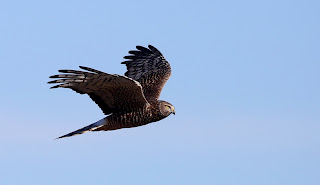

















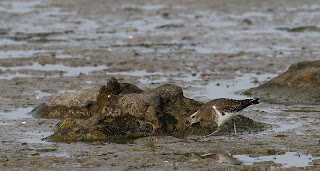















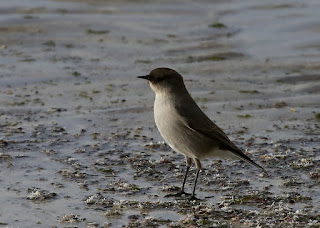








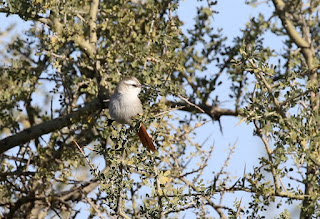




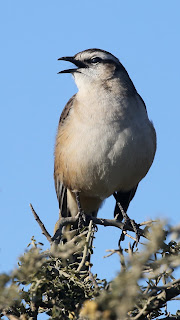





No comments:
Post a Comment